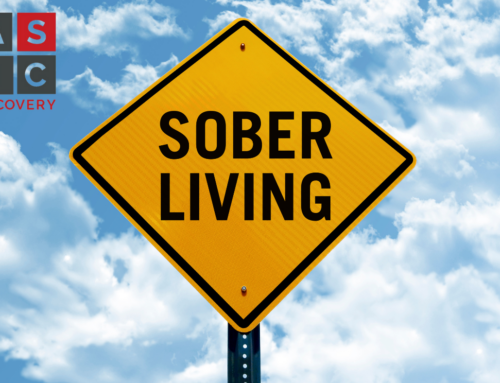Lysergic Acid Diethylamide (LSD), commonly known as acid, is a potent hallucinogenic drug that alters your thoughts and feelings, leading to a distortion of your reality.
This substance is synthesized from ergot, a fungus that grows on rye and other grains. LSD is usually consumed orally, often on small squares of blotter paper that have been soaked in the drug.
The effects of LSD can be unpredictable. They depend on the amount taken, your surroundings, your mood, and your expectations. You might feel euphoria, anxiety, paranoia, or terror, often all within the same experience.
Visual and auditory hallucinations are common, making it seem as if you are experiencing things that aren’t there.
These effects can last up to 12 hours, a long time compared to other recreational drugs. This long duration, coupled with the unpredictable nature of the drug, can make the experience intense and overwhelming, which can lead to dangerous situations.
The Question: Is LSD Addictive?
LSD is not considered physically addictive as it does not cause your body to crave LSD like you would nicotine or heroin. However, it can be psychologically addictive. This means that you might become reliant on the feelings and experiences that LSD provides and feel compelled to keep using LSD despite its harmful consequences.
Unlike other drugs, LSD does not produce withdrawal symptoms when stopped suddenly. However, frequent users may develop a tolerance to the drug, meaning they need to take more of it to experience the same effects. This can lead to a cycle of increased use and potential harm.
It’s also worth noting that, while LSD itself may not be addictive, the environment and circumstances surrounding its use can contribute to a pattern of substance abuse. This is particularly true when LSD is used as a “club drug” in party or festival settings, where the use of multiple substances like cocaine and ketamine alongside LSD is common.
Most people who struggle to quit using LSD have a polysubstance abuse problem. They’re rarely only addicted to LSD and often need help to quit a wide variety of drugs. However, it’s possible to become addicted solely to LSD, especially if you’ve convinced yourself that LSD is “safe” or “okay” as long as you don’t take any other drugs.
Understanding Hallucinogens
Hallucinogens are a class of drugs that cause profound distortions in a person’s perceptions of reality. These can include LSD, psilocybin (magic mushrooms), and mescaline (peyote). Hallucinogens can be found in some plants and mushrooms or can be human-made. They are commonly used recreationally for their psychedelic effects.
These drugs work by disrupting communication between nerve cells and the neurotransmitter serotonin, which regulates mood, sensory perception, sleep, hunger, body temperature, sexual behavior, and muscle control. This disturbance creates a variety of mental and physical effects that can be both pleasant and frightening.
While hallucinogens can provide a sense of euphoria and self-awareness, they can also cause severe panic and psychosis. The effects can be unpredictable and depend on various factors, including the drug’s strength, the user’s personality, mood, expectations, and surroundings.
The biggest danger of hallucinogens, including LSD and even marijuana, is that they can trigger a psychotic break in people who did not previously have any psychological issues. They’ve even been known to induce permanent schizophrenia in people who did not previously suffer from that illness.
The Science Behind LSD Addiction
When LSD disrupts the communication between nerve cells and the neurotransmitter serotonin, causing a release of dopamine in the brain, you feel an intense sense of pleasure. This is a part of your brain’s reward center, which triggers reinforcement of behavior.
While this dopamine release does not lead to physical dependence or withdrawal symptoms, as seen with other addictive substances, it can create a desire to repeat the experience. This is where the potential for psychological addiction lies.
When regular users of LSD develop a high tolerance, they are more likely to engage in dangerous behavior, as users may take more of the substance than is safe in an attempt to reach the desired effects.
On top of that, the increasingly high doses require more and more money to be invested in the drug, which can lead to money issues, issues at work, and relationship issues.
There’s another point to consider: regularly taking a drug that lasts for 12 hours means users will almost certainly be intoxicated around other people at some point, often friends, family members, or coworkers who then have to deal with their behavior while under the influence.
Physical and Psychological Effects of LSD
The physical effects of LSD are varied and can include:
- Increased heart rate
- High blood pressure
- Dilated pupils
- Sweating
- Loss of appetite
- Insomnia
- Dry mouth
- Tremors
While these effects can be uncomfortable, they are typically not life-threatening.
The psychological effects of LSD, however, can be severe and lead to dangerous behavior. These can include:
- Hallucinations
- Mood swings
- Impaired depth and time perception
- Distorted perception of the size and shape of objects, movements, color, sounds, touch, and body image
- Severe, terrifying thoughts and feelings
- Fear of losing control
- Panic attacks
- Psychosis (temporary or permanent)
Repeated use of LSD can also lead to long-term mental health issues, such as persistent psychosis and hallucinogen-persisting perception disorder (HPPD). These conditions can cause ongoing mental health problems, even after stopping the use of LSD.
Treatment Options for LSD and Hallucinogen Addiction
Though overcoming any addiction is challenging, there is hope for those struggling with LSD and hallucinogen addiction. Treatment typically involves a combination of behavioral therapies, 12-step support groups, and sometimes, medication.
Cognitive-behavioral therapy (CBT) can be particularly effective as it helps you understand and change the thought patterns that lead to harmful behavior. Other therapies, such as contingency management and motivational interviewing, can also be beneficial.
12-stepsupport groups can provide a sense of community and understanding, which can be crucial during recovery. These groups allow you to share your experiences, learn from others, and gain support from peers who understand your struggles.
There are currently no specific medications approved to treat hallucinogen addiction. However, certain medications may be used to manage symptoms of withdrawal or co-occurring mental health conditions.
Addressing LSD and Hallucinogen Addiction Effectively
While LSD is not typically considered physically addictive, the potential for psychological addiction and harm is real. Understanding the nature of hallucinogens, the effects of LSD, and the science behind addiction can help you make the decision to stop abusing LSD and work toward recovery.
LSD addiction is a serious issue, but help is available. With the right support and treatment, it’s possible to break free from the cycle of addiction and regain control over your life.
If you or a loved one is struggling with LSD addiction, we can help.
At ASIC, our Intensive Outpatient Program (IOP), counseling programs, and Partial Hospitalization Program are dedicated to helping you develop healthier coping skills and build a supportive recovery network so that you can achieve long-term sobriety.



